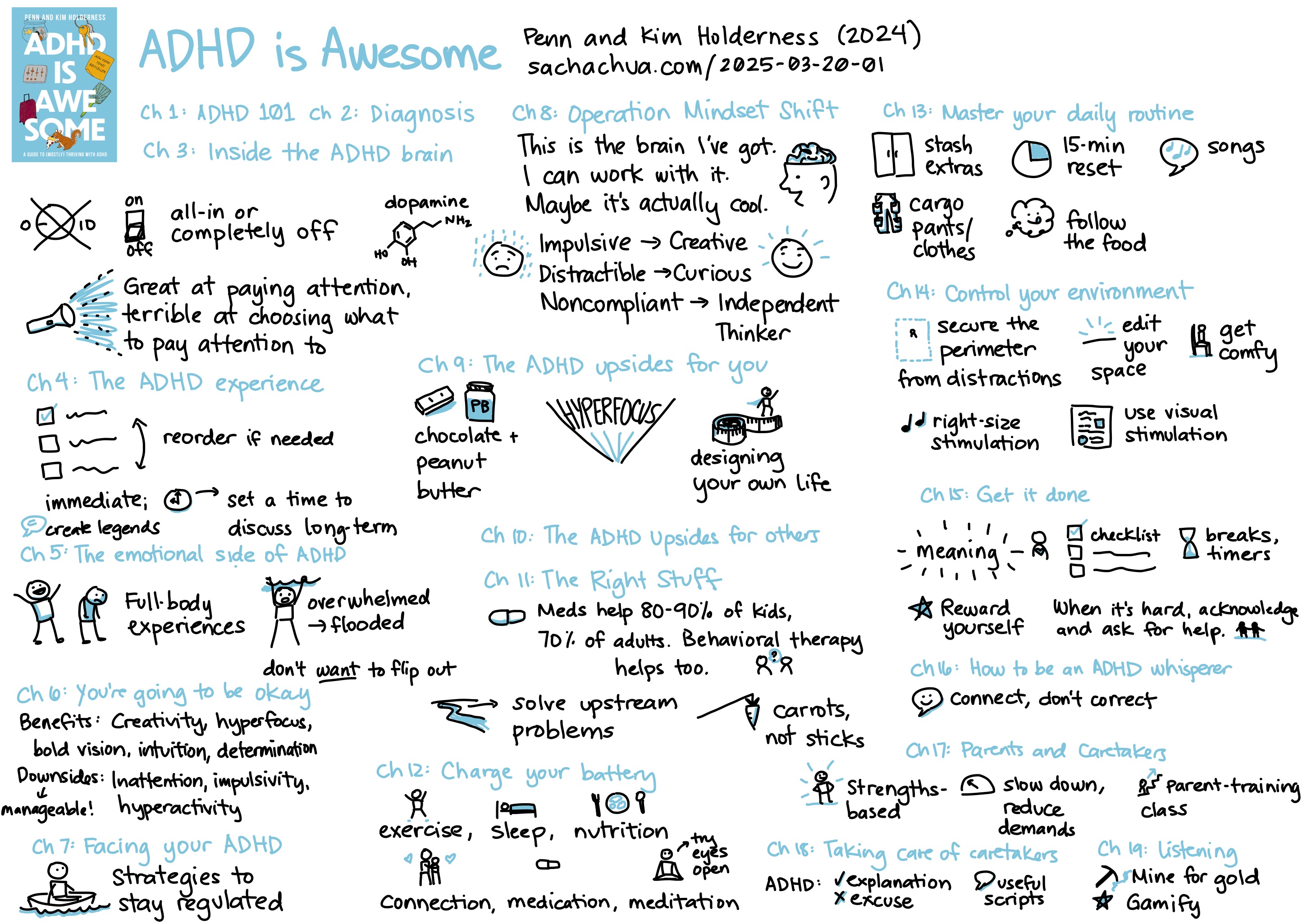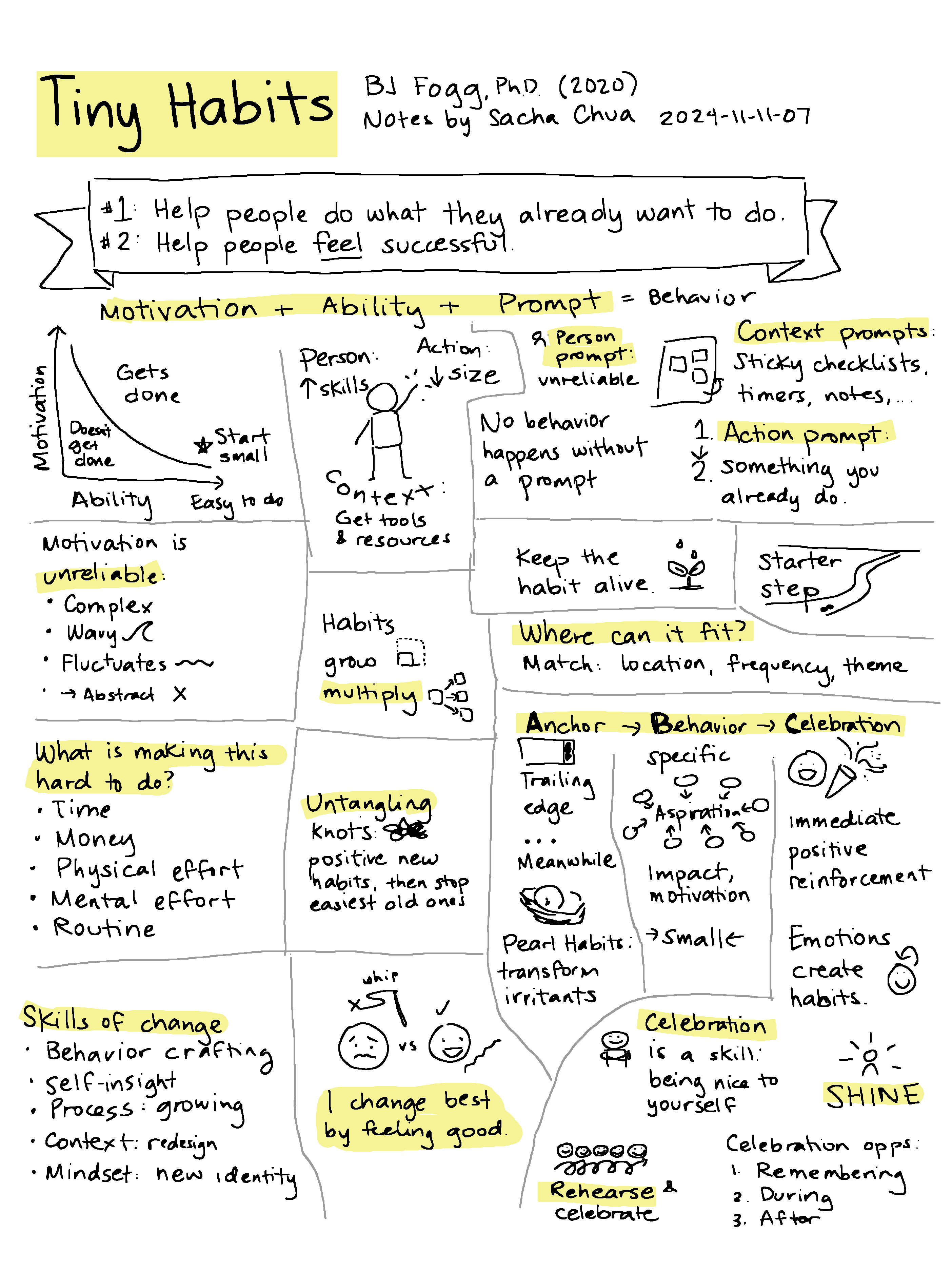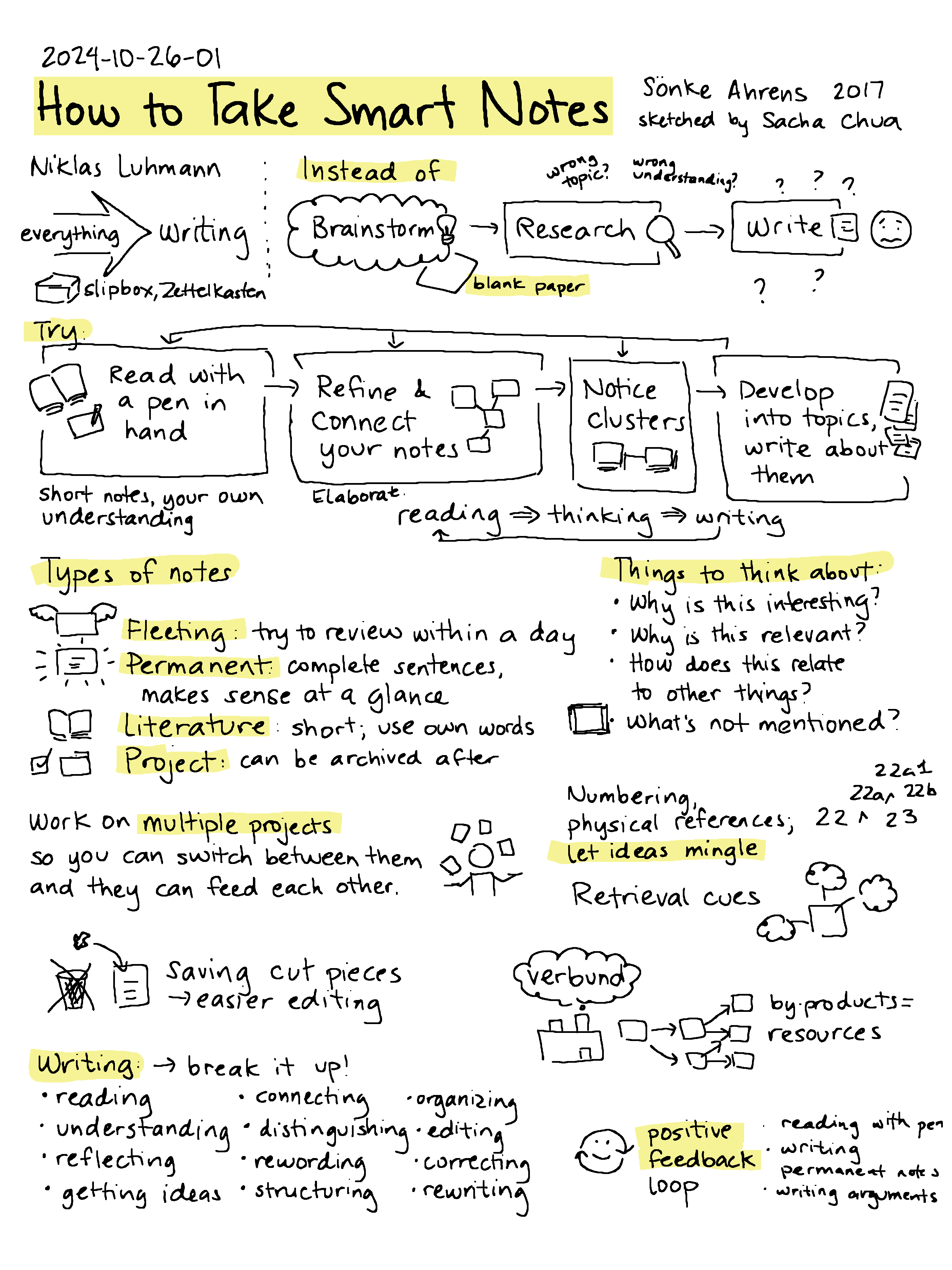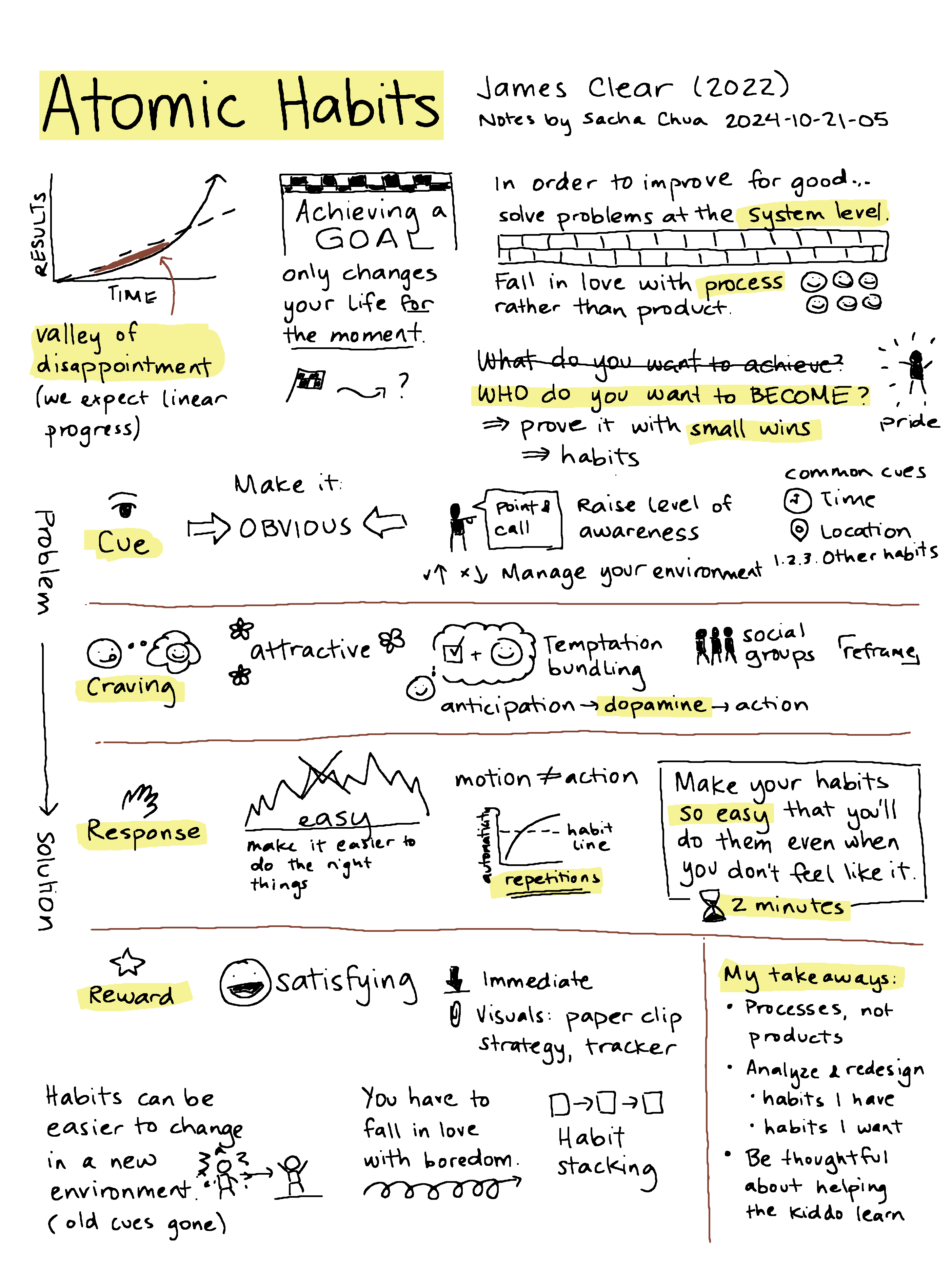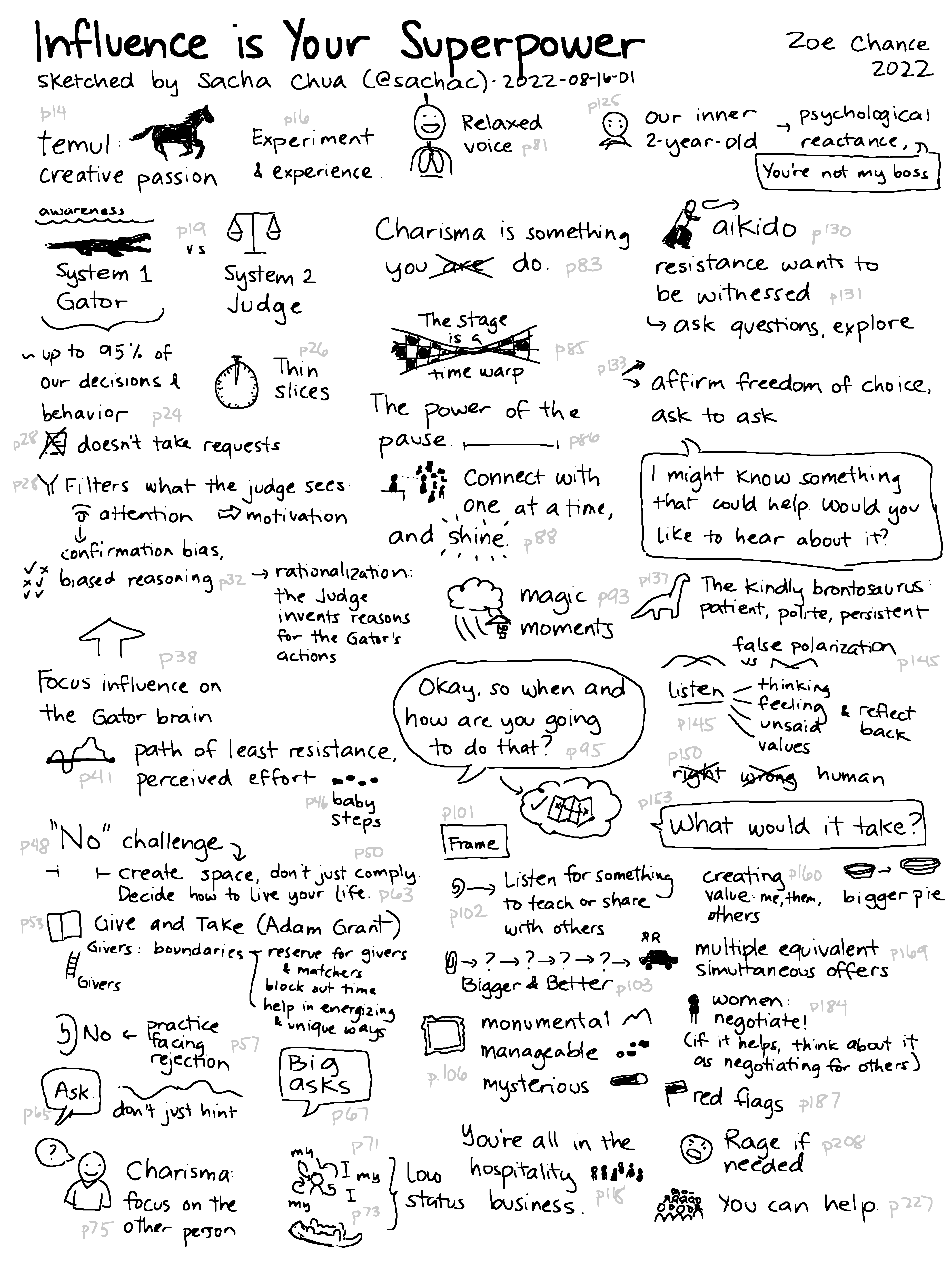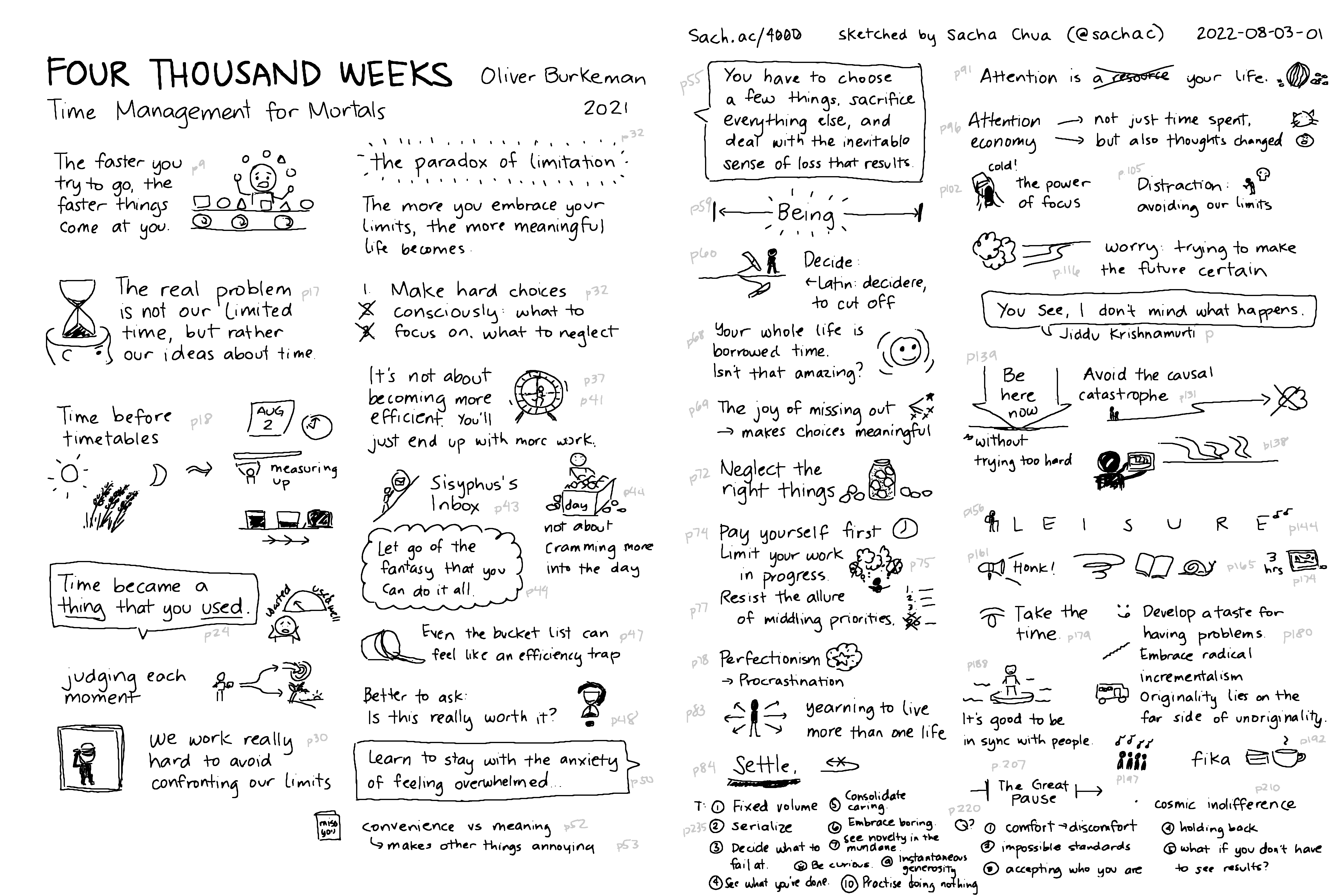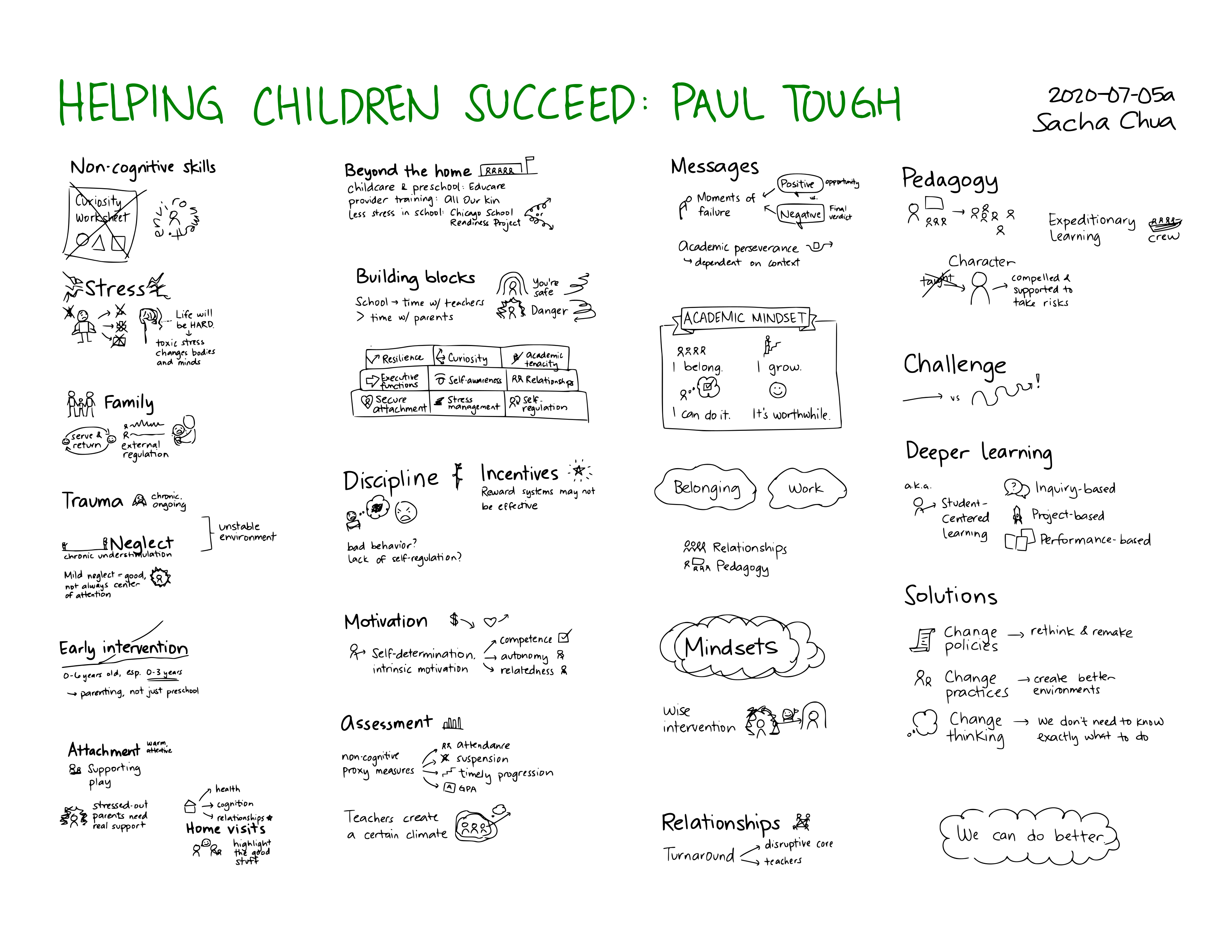Visual book notes: ADHD is Awesome - Penn and Kim Holderness (2024)
| visual-book-notes(Feel free to use or share this under the Creative Commons Attribution license!)
Text and links from sketch
ADHD is Awesome - Penn and Kim Holderness (2024) sachachua.com/2025-03-20-01
Notes:
- Ch 1: ADHD 101
- Ch 2: Diagnosis
- Ch 3: Inside the ADHD brain
- all-in or completely off
- dopamine
- Great at paying attention, terrible at choosing what pay attention to
- Ch 4: The ADHD experience
- checklist
- reorder if needed
- immediate; set a time to discuss long-term
- Ch 5: The emotional side of ADHD
- full-body experiences
- overwhelmed: flooded
- don't want to flip out
- Ch 6: You're going to be okay
- Benefits: Creativity, hyperfocus, bold vision, intuition, determination
- Downsides (manageable!): Inattention, impulsivity, hyperactivity
- Ch 7: Facing your ADHD
- Strategies to stay regulated
- Ch 8: Operation Mindset Shift
- This is the brain I've got. I can work with it. Maybe it's actually cool.
- Impulsive -> Creative
- Distractible -> Curious
- Noncompliant -> Independent Thinker
- Ch 9: The ADHD upsides for you
- chocolate + peanut butter
- hyperfocus
- designing your own life
- Ch 10: The ADHD Upsides for others
- Ch 11: The Right Stuff
- Meds help 80-90% of kids, 70% of adults.
- Behavioral therapy helps too.
- solve upstream problems
- carrots, not sticks
- Ch 12: Charge your battery
- exercise, sleep, nutrition, connection, medication, meditation (try eyes open)
- Ch 13: Master your daily routine
- stash extras
- 15-min reset
- cargo pants/clothes
- songs
- follow the food
- Ch 14: Control your environment
- secure the perimeter from distractions
- edit your space
- get comfy
- right-size stimulation
- use visual stimulation
- Ch 15: Get it done
- meaning
- checklist
- breaks, timers
- reward yourself
- when it's hard, acknowledge and ask for help
- Ch 16: How to be an ADHD whisperer
- connect, don't correct
- Ch 17: Parents and caretakers
- Strengths-based
- slow down, reduce demands
- parent-training class
- Ch 18: Taking care of caretakers
- ADHD: explanation, not excuse
- useful scripts
- Ch 19: Listening
- mine for gold
- gamify
ADHD is Awesome (2024) by Penn and Kim Holderness is a practical, positive, easy-to-read book on living with ADHD.
I find ADHD-oriented tips useful. My brain is prone to misplacing things, going off on tangents, and having attentional hiccups. Organizing my life around following my interests and minimizing commitments helps me increase happiness and reduce stress. Sketchnotes help me focus on what I'm learning and provide visual stimulation in my notes, making them more fun for me to review and share. I don't stock extras of things in a cabinet, but I do keep an Oops fund so I don't have to beat myself up over mistakes that cost a little money. I don't wear cargo pants, but I do wear vests with lots of pockets, a habit I picked up from my dad. I'm still working on developing that 15-minute reset habit, and on seeing and doing something about clutter.
As for the kiddo, there's no getting A+ to do things she's not interested in, and there's no holding her back if she's focused on something. Tips for parenting kids with ADHD also seem to work well for her: breaks, timers, taking advantage of hyperfocus, avoiding shame. My job is to:
- Practise connecting instead of correcting: Fretting at her doesn't accomplish anything. We work better when we feel connected.
- Explore and model things that work for me: I can show her how I use sketchnotes, checklists, timers, breaks, curiosity, learning, experimentation, self-compassion… Also, taking care of my sleep/exercise/happiness makes it easier to be the kind of parent I want to be.
- Help her learn how to figure things out for herself: I can help her navigate systems that aren't designed for her (like school) and figure out things that would work better for her.
- Frame things positively: Finding positive ways to frame our quirks can help with both self-image and other people's perceptions (chapter 4). Focusing on our strengths works better than beating ourselves up for our weaknesses. We still want to work around our weaknesses so they don't limit us, but might be able to use our strengths to do that.
The Hypercuriosity Theory of ADHD (and the paper) is also a good read that's somewhat related.

